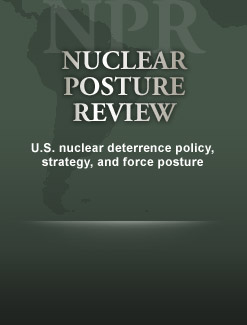President Obama is nearing the end of his second term in office. There are some things that he would like to do before he leaves office. Reports have been circulating that he is interested in making some major changes in the U.S. nuclear posture that relates to nuclear weapons and the terms under which they might be used. One very big question for any nation in possession of nuclear weapons is whether or not they would ever consider the first use of nuclear weapons against an adversary in a conflict.
China and India flatly state that they will not be the first to use nuclear weapons in any conflict. Pakistan says that it would consider the first use of nuclear weapons if it was losing a convention war with India. Russia has stated that they would consider being the first to use nuclear weapons if they were losing a conventional war against NATO forces. NATO forces reserve the right to be the first to use nuclear weapons in a conflict in Europe. Israel does not even admit that it has nuclear weapons so it has no publicly stated policy on the first use question. North Korea has often threatened to use nuclear weapons without any restraints.
The United States currently has a policy that says that the U.S. will not use nuclear weapons against any nation that does not possess nuclear weapons or other weapons of mass destruction. However, the U.S. does not rule out the possible first use of nuclear weapons against countries which do possess nuclear weapons or other weapons of mass destruction.
The Obama administration is discussing revising the U.S. nuclear posture including changing the first use policy. Obama would like to rule out the first use of nuclear weapons in any conflict. The last major review of U.S. nuclear policy was the Nuclear Posture Review of 2010. At that time, the Review advised against any changes to the U.S. first use policy.
Considering the current threat that the U.S. might be the first to use nuclear weapons against any state that possesses other weapons of mass destruction such as biological or chemical weapons, critics of the possible change to absolute no first use policy point out that such a change might make potentials enemies such as Russia and China more inclined to attack the U.S. with non-nuclear weapons of mass destruction.
Another problem that critics have with changing the current U.S. first use policy is the fact that there are thirty other nations around the world who rely on the nuclear arsenal of the U.S. to protect them from nuclear threats of hostile neighbors. This U.S. policy has helped to prevent the spread of nuclear weapons programs to allies of the U.S. Changing the U.S. policy might prompt some of these allies to begin to pursue the development of their own nuclear weapons programs.
A third concern of critics is that having an absolute policy of never being the first nation in a conflict to use nuclear weapons would tie the hands of future presidents. We cannot anticipate possible development of new weapons that would make the first use of nuclear weapons a reasonable choice in order to prevent a conflict or prevail in a conflict.
The question of whether or not to have a policy of never being the first to use nuclear weapons is a complex issue with good arguments and possible problems on both sides of the debate. However, to be realistic, simply having a stated policy of not being the first to use nuclear weapons would not prevent such first use in desperate situations.
